“The North is wherever you want. There is not just one way… adaptability is the key!”

On 6 December, the Job Talks took place at the Faculty of Medicine of the University of Lisbon (FMUL). Over an afternoon, several health professionals told their professional story with the aim of inspiring future doctors. We know that the moment to decide which area to pursue professionally is quite complicated and, at times, generates emotional conflict in young people. That's why the Student Support Office (GAE) organized an entire afternoon of lectures on the different academic and professional paths in the field of Medicine and Nutrition.
The speakers, by telling their story and life experience, managed to touch the audience in different ways. The silences were absolute while each one spoke and, at times, a few smiles helped to ease the deeply serious and emotional accounts of the speakers.
The conferences dedicated to the area of Medicine took place in the Aula Magna of the FMUL and, at the same time, lectures on Nutrition took place in Amphitheatre 58, in the Egas Moniz Building.

At Aula Magna, the first conference was on the theme "from trauma to recovery" and the first to speak, to tell his career and professional choices, was João Nóbrega, former student of the Faculty, Professor of Anatomy and Intern Orthopaedist.
He began by asking the students in the auditorium to imagine themselves doctors and to ask an individual question: “Do I want to deal with more or less people? Do I like the monotony of the specialty I'm going to choose?”.
He advised them to try out the specialty they intend to choose in different realities, in other words, “you create your environment, but you have to see several different places. Working in a large centre can bring more experience than in a peripheral place.” He added, “being an external intern is not the same as being from the house, because the one who is now my doctor, was once my teacher, has known me for years”.
He stressed that everyone must be versatile in their specialty, "trauma is a puzzle, everything doesn't always come together right", and that in Orthopaedics there is an immediate reward for the patient, as the recovery process is quickly visible. Still, he posed the question whether as futures doctors, students want to deal with death or not? (remaining silent for a few seconds).
João Nóbrega talked about his close contact with various types of surgery, stating that, “the scooter is our pandemic ”, since most traumas occur in accidents with this new form of transport. He finally saw himself as a person who doesn't go through things lightly, because he still believes he can change the world.
And to students who still think that studying is too hard, he added, “the internship is much worse than studying at the Faculty, because we also study, but then we work long hours”. The doctor suggested that, in the holiday months, instead of being idle for 3 months, students should carry out internships, making the most of their time and acquiring new skills. "Know how to wait and listen to the elders, the time will come when you will be the ones who speak".
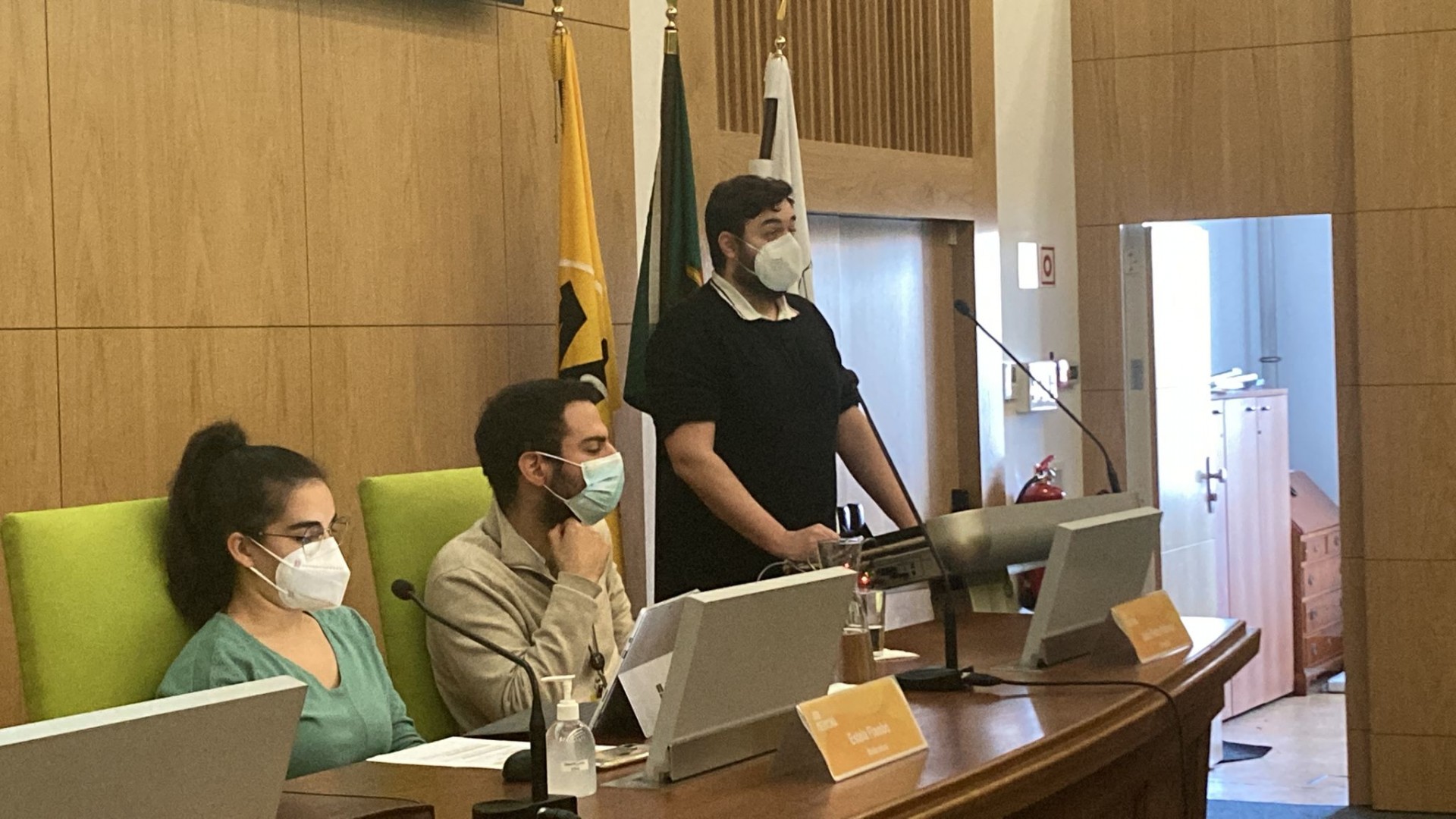
This was followed by the intervention of Miguel Matias, Plastic Surgery Intern at the Central Hospital. He began by mentioning that he always loved Anatomy and Internal Medicine and that he had been inspired by Professor Válter Fonseca. “Choosing a specialty is much more complex than just making a cross when choosing access to the Faculty”, he said.
He explained that most of his patients are "unlucky", but that this is good, because it means he doesn't deal with death and manages to restore and improve people's lives.
He advised future doctors to show interest in the work and to do more, so they will always be called upon according to the skills that each one has. "As long as they know how to respond, they will always be called". He stressed that it is necessary to go ahead of the current trend to have career security. He also highlighted the importance of scientific work, which carries a high weight in the final evaluation. Finally, he said, “in your internship, you will go from twirl to twirl without a safety net”.
“The state-of-the-art surgery performed in Portugal is in the National Health Service (SNS)”, and if the students don't go after the chaos, no one will give them surgery, “you have to go after it and be curious”.
Trauma goes hand in hand with plastic surgery, one creates the other, and he reported that, “chainsaws is our pandemic (cut hands)”.
He ended by saying that hospitals without academic centres accept more job offers because they have less access to professionals. He said they should not be in a hurry to go to the emergency room very early, as "you will have a lot of time for that, you should study too".
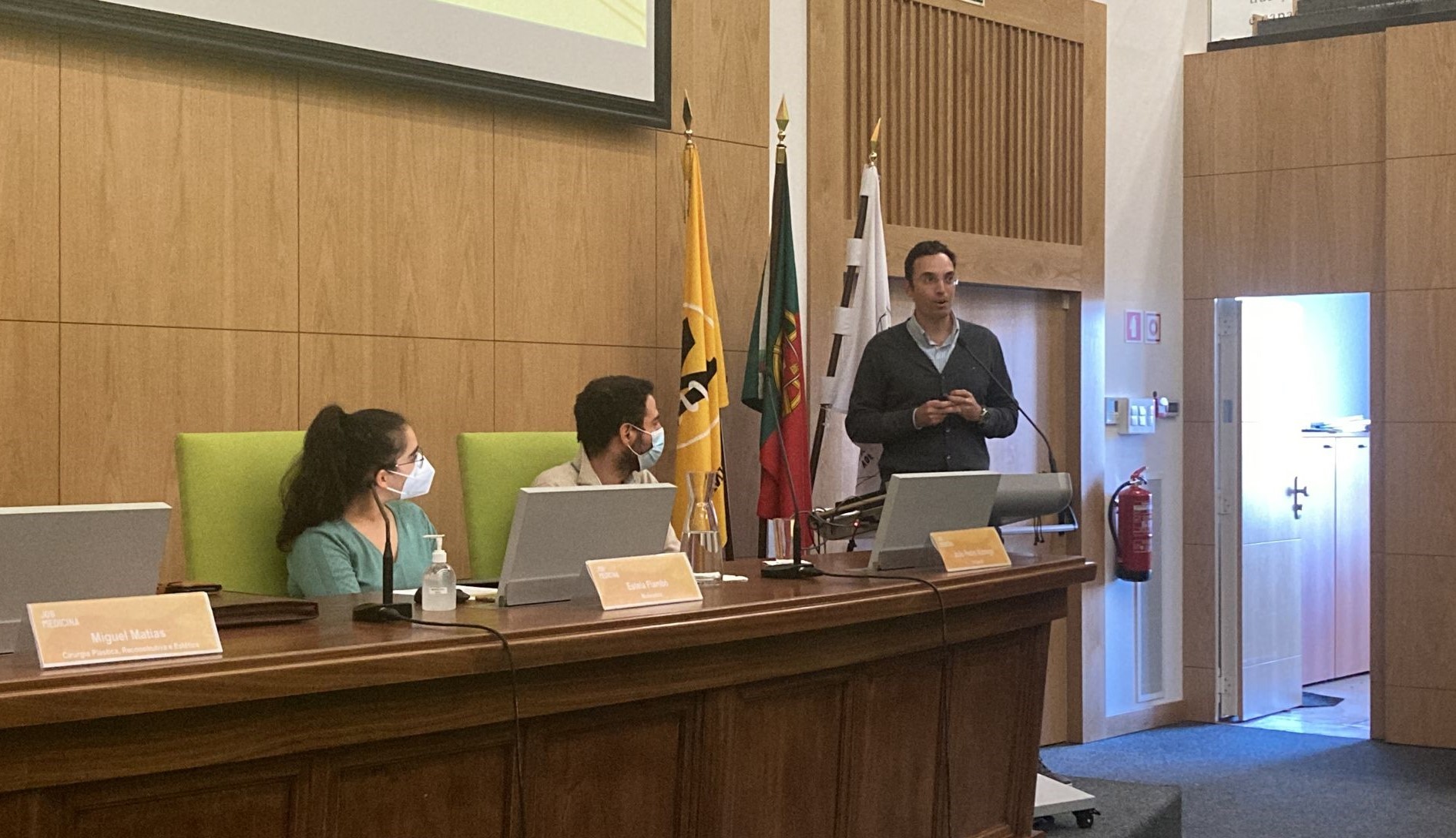
Ricardo Henriques, Physician of Physical Medicine and Rehabilitation, at the Northern Lisbon University Hospital Centre (CHULN), finished the first session of lectures on the various professional paths, considering that proximity to people is one of the great marks of a doctor and that this competence may be threatened by delays in health processes. In other words, "patients are waiting so long that they end up delaying our own performance".
“We cannot rehabilitate a body, there is the individual as a whole, and also their ascendants and descendants”, reinforcing the importance of the multidisciplinarity of medical areas, namely, trauma, plastic surgery and then rehabilitation.
Finally, he asked the students if they would be prepared to have stress peaks and out-of-hours operations, as "they should assess whether they can handle this work pace".
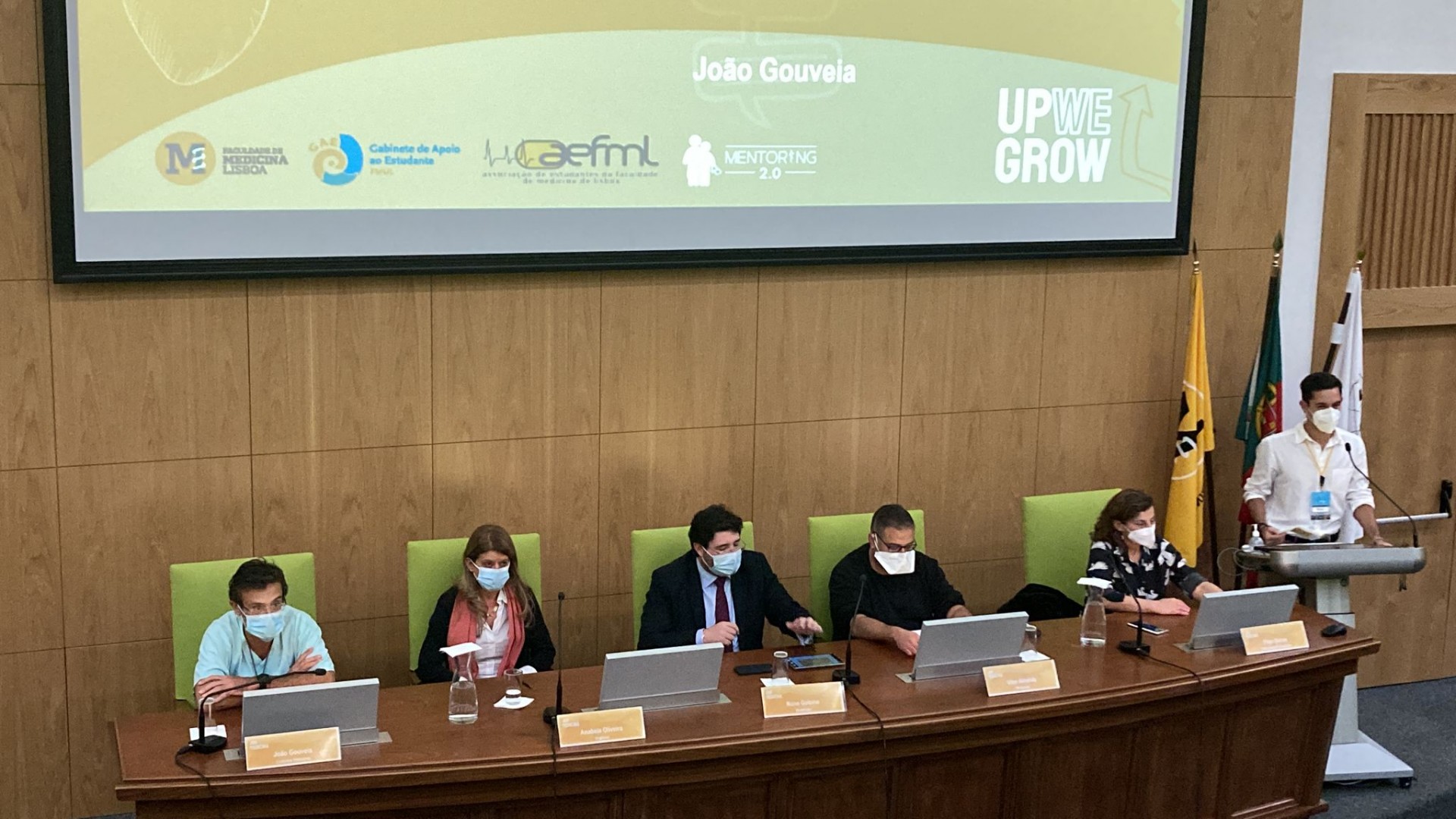
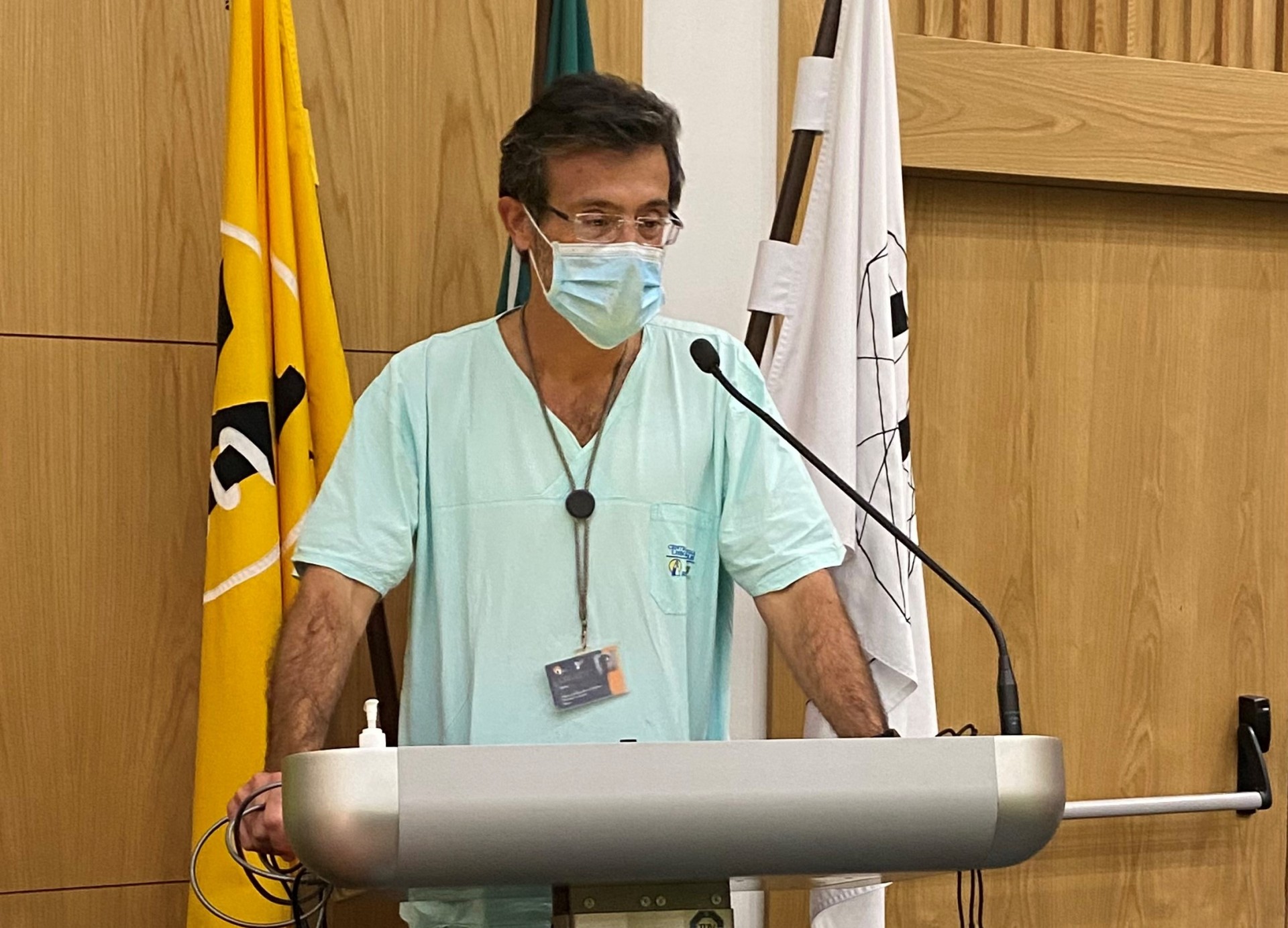
The second conference, entitled "From emergency to hospitalization", had as its first speaker Dr João Gouveia, Intensive Care Physician and President of the Intensive Care Society, who defended his specialty with real passion. He believes that those who work in Intensive Care "are the ones who 'know' patients the most." He also explained that intensive medicine was born out of a pandemic, Polio, precisely to treat patients with severe respiratory illness.
Right now, Intensive Care Medicine is in need of new people "because about 50% are over 50 years old and this is a way in to a career." The large increase in the number of admissions to intensive care medicine was due to the medical effort and goodwill of the teams and the help of others who came from other units.
He recognizes that there needs to be rewards for what they do and, in this specialty, the reward is faster as the patient's diagnosis is made. This "specialty is very attractive from a pathophysiological point of view, I can get into the patient's pathophysiology and see my interventions", he said. However, intensive care medicine must be present in emergency, perioperative medicine, organ donation and catastrophe medicine.
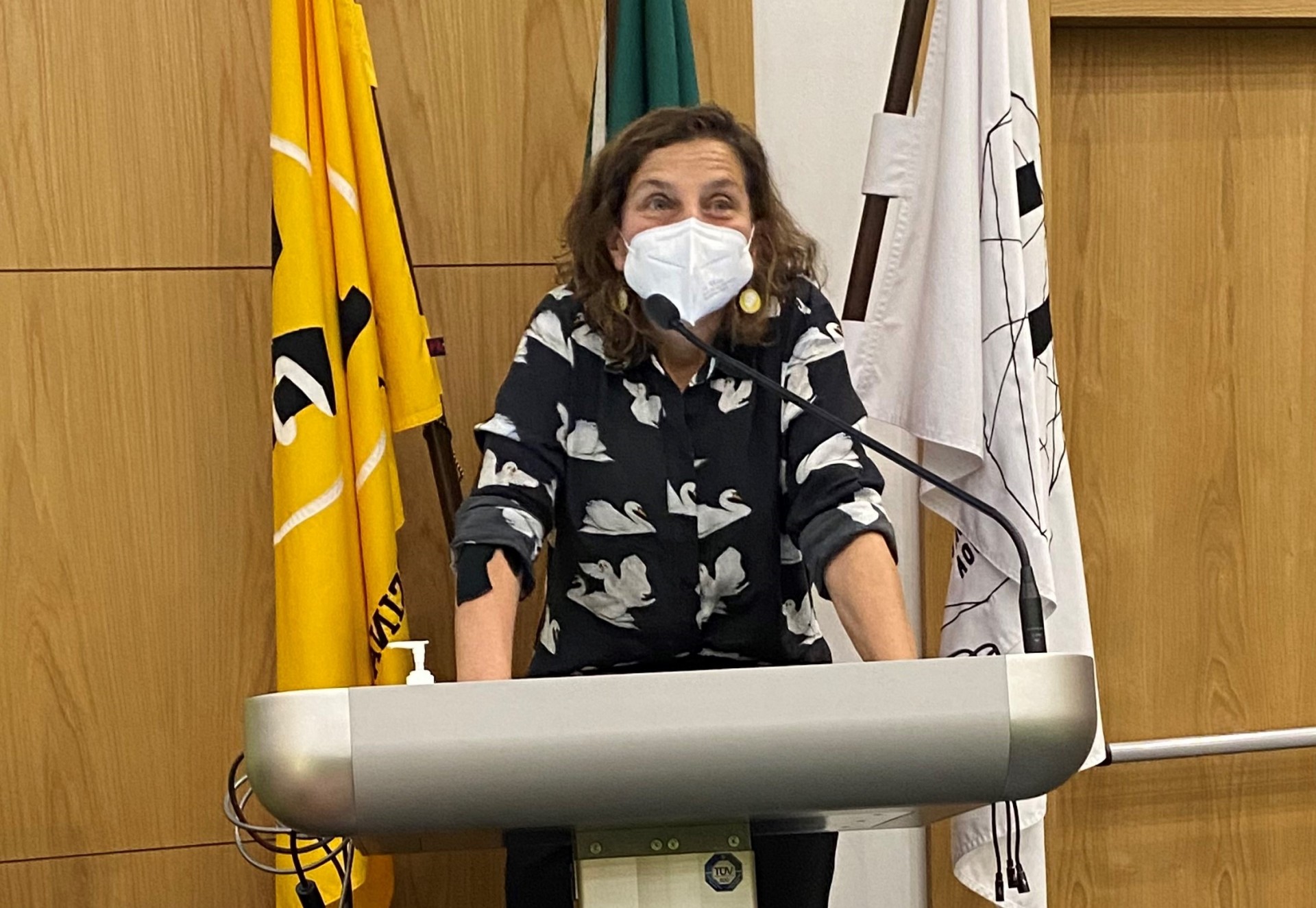
Filipa Barros, Internal Physician and Pre-Hospital Emergency Medical Intensivist, coordinates several projects at INEM. She stated that Pre-Hospital Emergency “is not a specialty, it's a choice, a passion and a way of life”.
The Emergency and Resuscitation Medical Vehicle (VMER) started by making it possible to treat patients outside the hospital environment and “this is the area where we put the right patient, in the right place, at the right time”.
What motivates her most about working in a VMER is not knowing what to expect when an emergency call is made, and “arriving and finding the unexpected and then managing the best for the patient”.
She doesn't forget her internist background. She entered the patients' homes several times and understood the way they lived, contacted their families, saw the reality of each of them and no one else sees it, so she ended up posing a challenge to the students: “what do you do from the point of view of volunteering so that you can understand the realities of each person?”

“The Emergency Room is the place that cuts across all specialties and is possibly the most popular service of all”, Anabela Oliveira declared at the beginning of her presentation. She is Professor of an optional emergency room subject at the FMUL and Director of the Emergency Service at the CHULN. She believes that this service is the gateway for many patients who cannot enter the NHS in any other way and the most scrutinized service by patients, politicians and journalists. This is because “it is a place where they take a long time; because there is flu; because one dies there; and it receives much more criticism”.
She also stated that, "Portugal is the OECD country that has more emergency episodes". The Director of the Emergency Service said "this is the place where no one likes to work" (smiled). This service is not yet considered a specialty, but there is a major investment to turn it into one, as it already happens in 80 countries.
She recalled, with some sadness, the dark days they had in the fight against the Covid-19 pandemic. She mentioned in particular the day when they had 50 ambulances at the door of the emergency service and she chose to go to the street, in the rain, to help the most seriously ill. Her passion was never pre-hospital care, but on that day she was forced to roll up her sleeves and help the sick inside the ambulances.
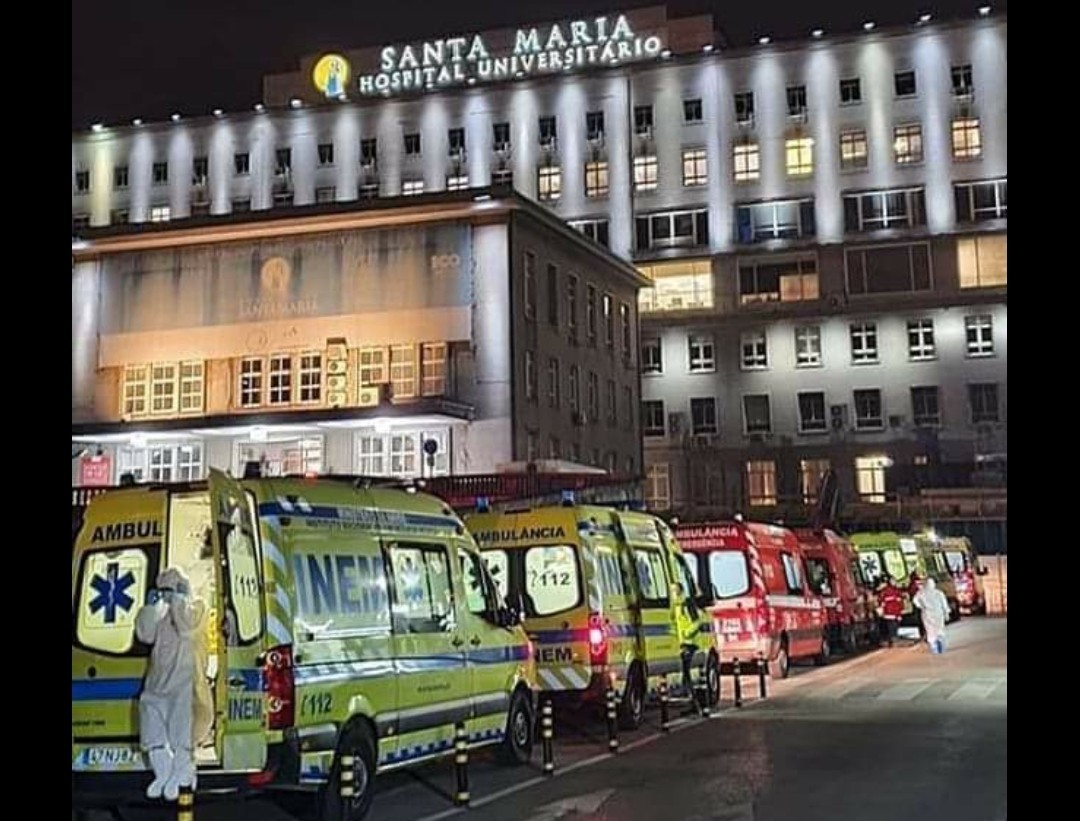

Dr Anabela Oliveira mentioned that, "we were only able to withstand the pandemic because we had the youngest intern doctors working in the emergency room". She also defended that teams should follow a dedicated model so that they become more involved and more motivated, creating more connections with patients, believing in the KAIZEN model.


In the area of Nutrition, the guest speakers were: Doctor Gabriela Ferreira, a Nutritionist dedicated to research; Doctor André Dinis, Clinical Nutritionist at the CHULN and Nutritionist Raquel Ferreira, who works in the area of community intervention.
Dr Gabriela Ferreira said that at the time of her professional decision, the main question she asked was what contribution could she make to society, whether she was a nutritionist or a scientist? And her decision was easy, as she said in her presentation, “where I am happiest is doing research”.
She argued that it is very important to deepen the subjects and learning and that self-confidence is not due to the fact that we are arrogant or have insecurities.
In 2017, she participated in an international congress, talking about the importance of networking and adaptability, because this shows interest in other people’s areas, learning what others do, which is an asset to her professional background. As an example, she showed a group photograph, with several doctors and specialists from other areas. Researcher Gabriela Ferreira was in the middle, the only nutritionist, and she asked future nutritionists: “in this situation what would I do, I am the only one in my area. Am I going to have lunch alone? Of course not, although most of the conversations are not my specialty, it is a way of making myself known and showing my adaptability skills and interest in other clinical areas”.

André Dinis, Clinical Nutritionist, focused his presentation on the challenges he felt throughout the nutrition degree. The first was to decide the area that aroused the most interest in him, arguing that everyone should look for what makes us feel more fulfilled and happy. Another challenge was to look at the market and understand what its needs are and try to associate this with our area of interest. Therefore, "we try to counteract the excess of doctors in the areas that are most in demand and create new opportunities".
Then, he encouraged students not to do things just because others do, thus having more time to enable them “promote development and innovation”. Finally, he spoke of the way in which we should act based on scientific evidence, providing the best care for the sick, a requirement that calls for constant updating.
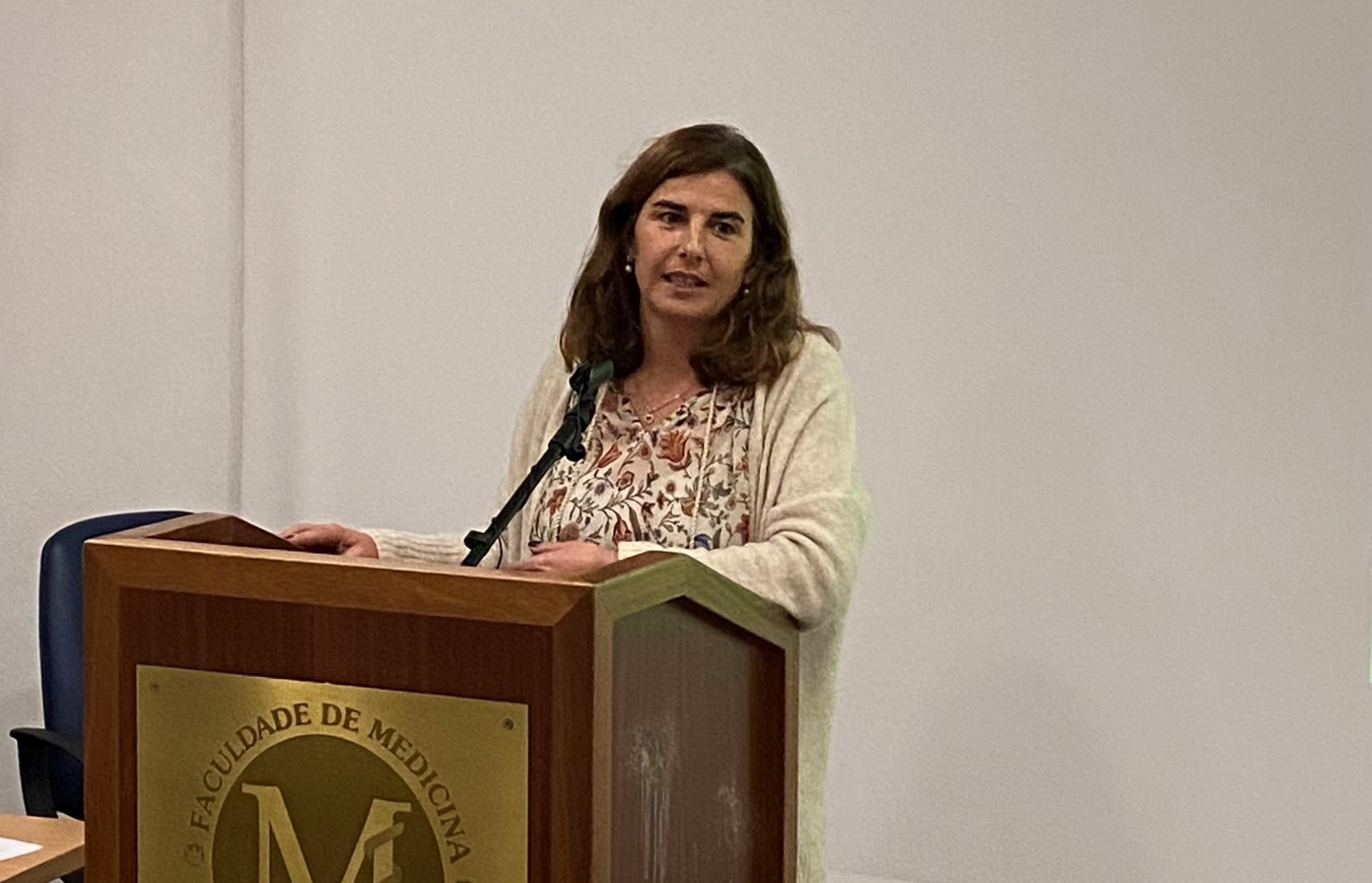
In the area of Community Intervention, Nutritionist Raquel Ferreira started her presentation by posing a challenge to everyone: on a scale from 1 to 10, what level each one felt was at that day? After this exercise, she quoted Socrates: “Know yourself”. She focused her presentation on that quote, worrying about transmitting to everyone what they should choose to do in life, in order to feel good. “We learn to do group work at school, but we do not learn how to deal with emotions”, she said.
“How do we want to learn, or be present, if our emotional state is negative?”, Raquel Ferreira said, adding that “if we want a happy community, it has to start with the individual”.
She ended the session by advising future nutritionists, when making a decision, to think about what each one really wants to do, where they want to be and "what their talent is, because that's what will distinguish you from each other".
“Nothing is impossible and we must be what we want to be,” she said.
We leave some general advice from a very productive afternoon with plenty of real life stories:
- Don't focus on the negative side, relativize the grades, treat people well, and always look back to see how you have grown;
- Rule out the possibility of going abroad. On the one hand there are many opportunities, on the other, everything is done as well here as abroad;
- Give importance to experiences within your context, to courses abroad, networking, listening to what exists and what others are doing to deepen your knowledge, not only in your specialty, but also in those around you;
- Take initiative, insist and don't wait to be called to work;
- Know your strengths and weaknesses, know the potential that each one has. Together with a good initiative, it can bring an opportunity;
- In research, we are more closed on to ourselves, we do not have direct contact with the patients or with nurses, but this implies a scientific update. In all areas, we must deepen our knowledge as much as possible, in order to always be able to support our ideas in the best possible way;
- Enthusiasm about the profession is very important. We must know ourselves and not be involved in things that bring us down.
Leonel Gomes
Editorial Team


